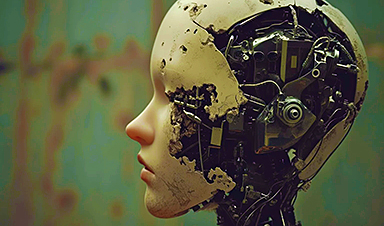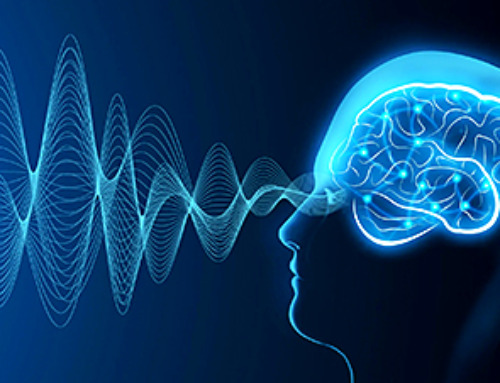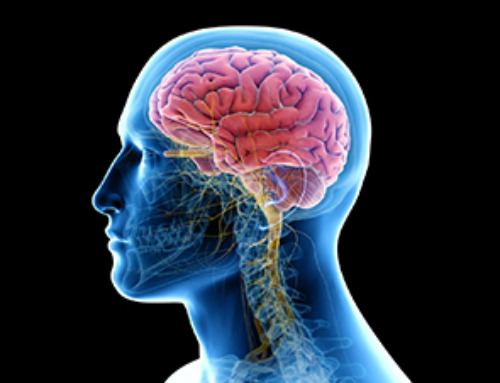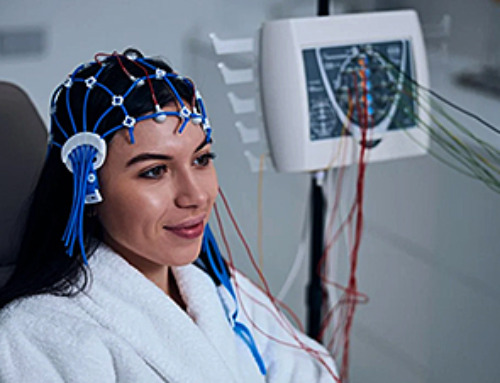Researchers from the University of Copenhagen have become the first in the world to mathematically prove that, beyond simple problems, it is impossible to develop algorithms for AI that will always be stable.
ChatGPT and similar machine learning-based technologies are on the rise. However, even the most advanced algorithms face limitations. Researchers from the University of Copenhagen have made a groundbreaking discovery, mathematically demonstrating that, beyond basic problems, it's impossible to develop AI algorithms that are always stable. This research could pave the way for improved testing protocols for algorithms, highlighting the inherent differences between machine processing and human intelligence.
The scientific article describing the result has been approved for publication at one of the leading international conferences on theoretical computer science.
Machines interpret medical scanning images more accurately than doctors, translate foreign languages, and may soon be able to drive cars more safely than humans. However, even the best algorithms do have weaknesses. A research team at the Department of Computer Science, University of Copenhagen, tries to reveal them.
Take an automated vehicle reading a road sign as an example. If someone has placed a sticker on the sign, this will not distract a human driver. But a machine may easily be put off because the sign is now different from the ones it was trained on.
"We would like algorithms to be stable in the sense, that if the input is changed slightly the output will remain almost the same. Real life involves all kinds of noise which humans are used to ignore, while machines can get confused," says Professor Amir Yehudayoff, heading the group.
A language for discussing weaknesses
As the first in the world, the group together with researchers from other countries has proven mathematically that apart from simple problems it is not possible to create algorithms for Machine Learning that will always be stable. The scientific article describing the result was approved for publication at one of the leading international conferences on theoretical computer science, Foundations of Computer Science (FOCS).
"I would like to note that we have not worked directly on automated car applications. Still, this seems like a problem too complex for algorithms to always be stable," says Amir Yehudayoff, adding that this does not necessarily imply major consequences in relation to the development of automated cars:
"If the algorithm only errs under a few very rare circumstances this may well be acceptable. But if it does so under a large collection of circumstances, it is bad news."
The scientific article cannot be applied by the industry to identify bugs in its algorithms. This wasn't the intention, the professor explains:
"We are developing a language for discussing the weaknesses in Machine Learning algorithms. This may lead to the development of guidelines that describe how algorithms should be tested. And in the long run, this may again lead to the development of better and more stable algorithms."
From intuition to mathematics
A possible application could be for testing algorithms for the protection of digital privacy.
"Some companies might claim to have developed an absolutely secure solution for privacy protection. Firstly, our methodology might help to establish that the solution cannot be absolutely secure. Secondly, it will be able to pinpoint points of weakness," says Amir Yehudayoff.
First and foremost, though, the scientific article contributes to theory. Especially the mathematical content is groundbreaking, he adds: "We understand intuitively, that a stable algorithm should work almost as well as before when exposed to a small amount of input noise. Just like the road sign with a sticker on it. But as theoretical computer scientists, we need a firm definition. We must be able to describe the problem in the language of mathematics. Exactly how much noise must the algorithm be able to withstand, and how close to the original output should the output be if we are to accept the algorithm to be stable? This is what we have suggested an answer to."
Important to keep limitations in mind
The scientific article has received large interest from colleagues in the theoretical computer science world, but not from the tech industry. Not yet at least.
"You should always expect some delay between a new theoretical development and interest from people working in applications," says Amir Yehudayoff while adding smilingly: "And some theoretical developments will remain unnoticed forever."
However, he does not see that happening in this case: "Machine Learning continues to progress rapidly, and it is important to remember that even solutions which are very successful in the real world still do have limitations. The machines may sometimes seem to be able to think but after all, they do not possess human intelligence. This is important to keep in mind."
Reference: "Replicability and Stability in Learning" by Zachary Chase, Shay Moran and Amir Yehudayoff, 2023, Foundations of Computer Science (FOCS) conference.
DOI: 10.48550/arXiv.2304.03757
News
Scientists Develop a New Way To See Inside the Human Body Using 3D Color Imaging
A newly developed imaging method blends ultrasound and photoacoustics to capture both tissue structure and blood-vessel function in 3D. By blending two powerful imaging methods, researchers from Caltech and USC have developed a new way to [...]
Brain waves could help paralyzed patients move again
People with spinal cord injuries often lose the ability to move their arms or legs. In many cases, the nerves in the limbs remain healthy, and the brain continues to function normally. The loss of [...]
Scientists Discover a New “Cleanup Hub” Inside the Human Brain
A newly identified lymphatic drainage pathway along the middle meningeal artery reveals how the human brain clears waste. How does the brain clear away waste? This task is handled by the brain’s lymphatic drainage [...]
New Drug Slashes Dangerous Blood Fats by Nearly 40% in First Human Trial
Scientists have found a way to fine-tune a central fat-control pathway in the liver, reducing harmful blood triglycerides while preserving beneficial cholesterol functions. When we eat, the body turns surplus calories into molecules called [...]
A Simple Brain Scan May Help Restore Movement After Paralysis
A brain cap and smart algorithms may one day help paralyzed patients turn thought into movement—no surgery required. People with spinal cord injuries often experience partial or complete loss of movement in their arms [...]
Plant Discovery Could Transform How Medicines Are Made
Scientists have uncovered an unexpected way plants make powerful chemicals, revealing hidden biological connections that could transform how medicines are discovered and produced. Plants produce protective chemicals called alkaloids as part of their natural [...]
Scientists Develop IV Therapy That Repairs the Brain After Stroke
New nanomaterial passes the blood-brain barrier to reduce damaging inflammation after the most common form of stroke. When someone experiences a stroke, doctors must quickly restore blood flow to the brain to prevent death. [...]
Analyzing Darwin’s specimens without opening 200-year-old jars
Scientists have successfully analyzed Charles Darwin's original specimens from his HMS Beagle voyage (1831 to 1836) to the Galapagos Islands. Remarkably, the specimens have been analyzed without opening their 200-year-old preservation jars. Examining 46 [...]
Scientists discover natural ‘brake’ that could stop harmful inflammation
Researchers at University College London (UCL) have uncovered a key mechanism that helps the body switch off inflammation—a breakthrough that could lead to new treatments for chronic diseases affecting millions worldwide. Inflammation is the [...]
A Forgotten Molecule Could Revive Failing Antifungal Drugs and Save Millions of Lives
Scientists have uncovered a way to make existing antifungal drugs work again against deadly, drug-resistant fungi. Fungal infections claim millions of lives worldwide each year, and current medical treatments are failing to keep pace. [...]
Scientists Trap Thyme’s Healing Power in Tiny Capsules
A new micro-encapsulation breakthrough could turn thyme’s powerful health benefits into safer, smarter nanodoses. Thyme extract is often praised for its wide range of health benefits, giving it a reputation as a natural medicinal [...]
Scientists Develop Spray-On Powder That Instantly Seals Life-Threatening Wounds
KAIST scientists have created a fast-acting, stable powder hemostat that stops bleeding in one second and could significantly improve survival in combat and emergency medicine. Severe blood loss remains the primary cause of death from [...]
Oceans Are Struggling To Absorb Carbon As Microplastics Flood Their Waters
New research points to an unexpected way plastic pollution may be influencing Earth’s climate system. A recent study suggests that microscopic plastic pollution is reducing the ocean’s capacity to take in carbon dioxide, a [...]
Molecular Manufacturing: The Future of Nanomedicine – New book from Frank Boehm
This book explores the revolutionary potential of atomically precise manufacturing technologies to transform global healthcare, as well as practically every other sector across society. This forward-thinking volume examines how envisaged Factory@Home systems might enable the cost-effective [...]
New Book! NanoMedical Brain/Cloud Interface – Explorations and Implications
New book from Frank Boehm, NanoappsMedical Inc Founder: This book explores the future hypothetical possibility that the cerebral cortex of the human brain might be seamlessly, safely, and securely connected with the Cloud via [...]
Global Health Care Equivalency in the Age of Nanotechnology, Nanomedicine and Artificial Intelligence
A new book by Frank Boehm, NanoappsMedical Inc. Founder. This groundbreaking volume explores the vision of a Global Health Care Equivalency (GHCE) system powered by artificial intelligence and quantum computing technologies, operating on secure [...]





















